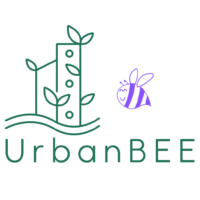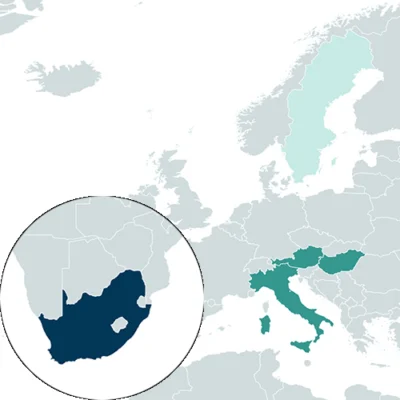
Promoting biodiversity, ecosystem services and societal engagement across diverse urban ecosystems
Call
Duration
01/03/2025 – 28/02/2028
Total grant
Approx. 900 thsd. €
More information
Chevonne Reynolds, Chevonne.reynolds@wits.ac.za
Partners of the project
- School of Animal, Plant and Environmental Sciences, University of the Witwatersrand, Johannesburg, South Africa
- Department of Biodiversity and Conservation Biology, University of the Western Cape, Cape Town, South Africa
- Konrad Lorenz Research Center, University of Vienna, Vienna, Austria
- Austrian Agency for Health and Food Security, Vienna Austria
- Department of Life Sciences and Systems Biology, University of Turin, Turin, Italy.
- Lendület Landscape and Conservation Biology, HUN-REN Centre for Ecological Research, Vácrátót, Hungary
- Department of Architecture and Urban Studies, Polytechnic University of Milan, Milan, Italy
- Lund Vison Group, Lund University, Lund, Sweden

Context
While urban development offers critical socio-economic opportunities, it also leads to environmental degradation, biodiversity loss and social inequalities. These issues manifest differently based on region-specific ecological, social and economic contexts, particularly across the Global North and South. UrbanBEE is an innovative solution within this global urban complexity, employing NbS to not only revitalise biodiversity but also transform urban residents into custodians of their environment – one patch of nature at a time.
Urban ecosystems worldwide are experiencing a concerning decline in pollinator populations. Addressing this requires robust research on actionable interventions that are adaptable across diverse contexts and ensure impactful and region-sensitive outcomes. UrbanBEE responds to this challenge through the introduction of solitary bee hotels (living labs) across seven cities in both the Global North and South. Blending urban biodiversity research with citizen science, the project promises a nuanced understanding of biodiversity dynamics across urban landscapes by intertwining scientific inquiry with grassroots community involvement.
In so doing, UrbanBee targets two pivotal knowledge gaps in NbS implementation: scalability of NbS across diverse contexts and the integration of varied stakeholder perspectives into NbS decision-making. UrbanBEE champions local interventions that are globally relevant and promotes transformative change through innovative decentralised solutions that enhance both biodiversity and human well-being.
Main objectives
- To generate comprehensive insights into biodiversity dynamics within urban settings, forming the basis for informed, adaptable NbS strategies across different urban environments;
- To implement and scale decentralised biodiversity interventions – solitary bee hotels, across varied socio-ecological gradients in African and European cities, thereby promoting pollinator populations and providing insight into urban biodiversity dynamics;
- To transform urban dwellers into active environmental custodians by engaging them in the monitoring of these bee hotels, thereby improving ecological literacy and promoting an appreciation of the societal value of biodiversity.
Main activities
- To undertake extensive research on urban biodiversity dynamics, illuminating synergies between urban biodiversity and human well-being, with the goal of shaping future NbS implementation and urban planning policies;
- To distribute 1,400 bee hotels across multiple cities in Africa and Europe, fostering robust urban pollination networks and emphasising the critical role of pollinators in sustaining urban ecosystems;
- To encourage urban residents from diverse socio-economic backgrounds to host, monitor, and collect biodiversity data, cultivating a sense of custodianship amongst participants.